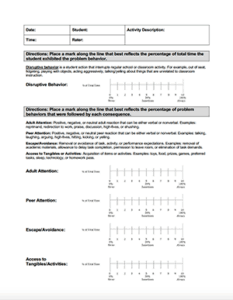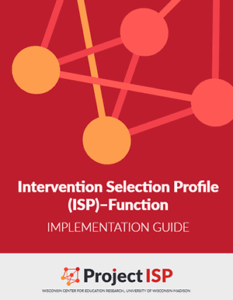Development and Validation of the Social, Academic, and Emotional Behavior Risk Screener for Early Childhood
The primary purpose of this project is to develop and validate a social, emotional, and behavioral risk screener for early childhood. The assessment will be an online and application-based universal screening system available in both English and Spanish. It will be aligned with the Social, Academic, and Emotional Behavior Risk Screener (SAEBRS), a universal screener for K–12 settings that has been adopted in all 50 states, with the aim of supporting transition planning between early childhood and K–12 settings as well as informing intervention.








